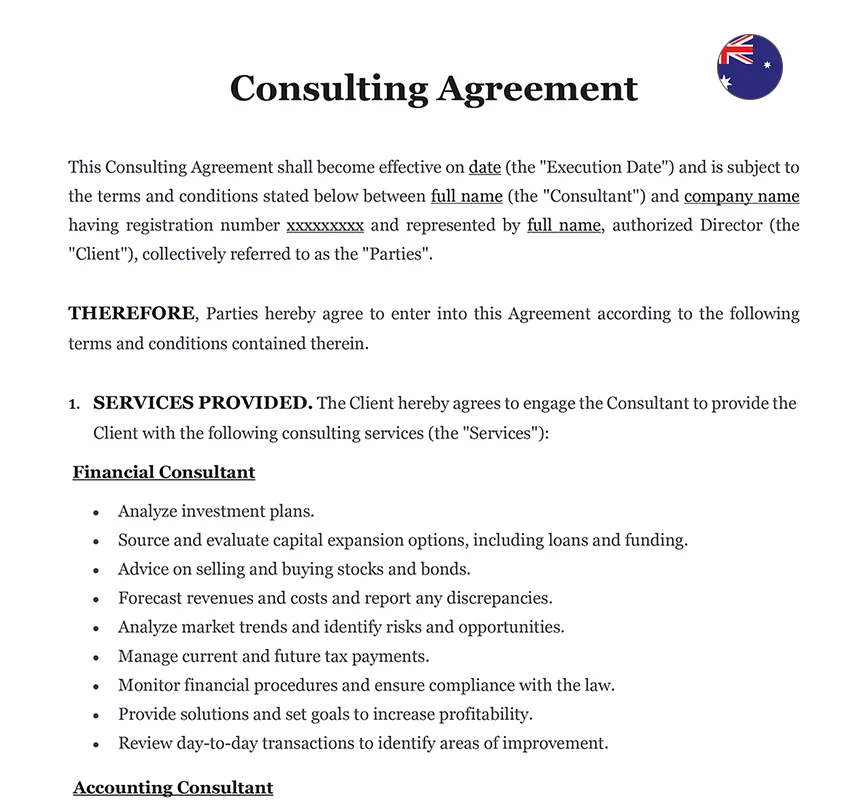The Importance of Independent Consultant Contracts
An Independent Consultant Contracts is a vital document that establishes the scope, terms, and conditions of an engagement between a consultant and a client. This guide highlights the most important clauses to include in independent consultant contracts in Australia, ensuring clarity and protection for both the consultant and the client.
Scope of Services
Clearly defining the scope of services ensures that both parties have a mutual understanding of the work to be performed.
1. Service Description: Detail the specific services the consultant will provide, avoiding any ambiguity.
2. Deliverables: List all deliverables expected from the consultant, including timelines for each.
3. Exclusions: Specify any services or tasks that are not included in the agreement.
4. Modifications: Outline the process for modifying the scope of services, including any impact on fees and timelines.
For further insights into structuring service-related agreements, you might find our article on Formalizing Client Service Contracts: A Legal Guide useful.
Payment Terms
Clearly defined payment terms help prevent disputes and ensure timely compensation for services rendered.
1. Fee Structure: Specify whether the consultant will be paid a fixed fee, hourly rate, or per project.
2. Invoicing: Detail the invoicing process, including frequency and due dates.
3. Payment Schedule: Outline the payment schedule, including any upfront payments or milestones.
4. Late Payments: Include provisions for late payments, such as penalties or interest charges.
Confidentiality and Non-Disclosure
Confidentiality clauses are essential for protecting sensitive information shared during the consulting engagement.
1. Confidential Information: Define what constitutes confidential information under the agreement.
2. Non-Disclosure Obligations: Specify the consultant’s obligations to protect the client’s confidential information.
3. Duration: State the duration of the confidentiality obligations, even after the contract ends.
4. Exceptions: Outline any exceptions to the non-disclosure obligations, such as information that is public or obtained independently.
For more information on protecting confidential business information, you can refer to our article on Using NDAs to Safeguard Business Secrets in Australia.
Intellectual Property Rights
Intellectual property (IP) clauses clarify ownership and usage rights of any materials created during the consultancy..
| ➤ Ownership of IP: Define who owns the intellectual property created during the consultancy. |
| ➤ License Terms: If the consultant retains ownership, specify the licensing terms for the client’s use of the IP. |
| ➤ Pre-Existing IP: Address the use of any pre-existing intellectual property brought into the project by the consultant. |
| ➤ Post-Engagement Use: Specify the rights and restrictions on using the intellectual property after the consultancy ends. |











